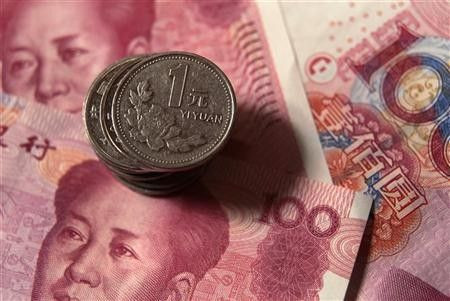China Cuts Banks' Reserve Ratio: Will it Provide Impetus for Lending and Sustain Economic Growth?

China’s central bank has announced a cut in reserve requirements for the first time this year to reinforce economic growth.
The cut in the reserve ration should be positive news for stocks as it will mean that the government is encouraging banks to lend to small companies, which as of now are badly affected by the credit crunch of the country.
The deceleration of the property investment, happening at an astonishingly faster than expected rate, is seriously impairing the economy of the country. China’s January home prices recorded their worst performance in at least a year, with none of the 70 cities monitored by the government posting gains.
Housing sales in China have plunged in recent months as home buyers have taken to the sidelines in anticipation of further decline in prices. Prices in 47 cities fell, while home values in the remaining 23 were unchanged from December, the National Statistics Bureau said in a statement last week.
Faced with a slowing economy and persistent inflationary pressures, China is in a bind regarding its policies for the property sector. Income from land sales and property transaction-related fees has traditionally been a source of revenue for local governments in China.
Falling property prices that are feeding into slowing investment will in turn affect headline inflation readings. China's annual inflation rate hit 4.5 percent in January, which is the highest level in three months, according to the official data released earlier. The inflation rate in December was 4.1 percent.
The continuing crisis in Europe and weakness in the U.S. are hurting demands for Chinese exports, which form the key driver of the country's economy. Earlier, the International Monetary Fund had warned that an escalation of Europe's debt crisis could reduce China's economic growth by half for this year.
China will announce its 2012 inflation target at the start of the meeting of the National People's Congress in early March. Inflation may no longer be the main concern of policymakers and the government may have more space to loosen monetary policies and make supporting economic growth a priority. Instead of fighting inflation, the most urgent priority for China appears to be the pro-growth policy stance against the current uncertain global situation.
© Copyright IBTimes 2024. All rights reserved.





















